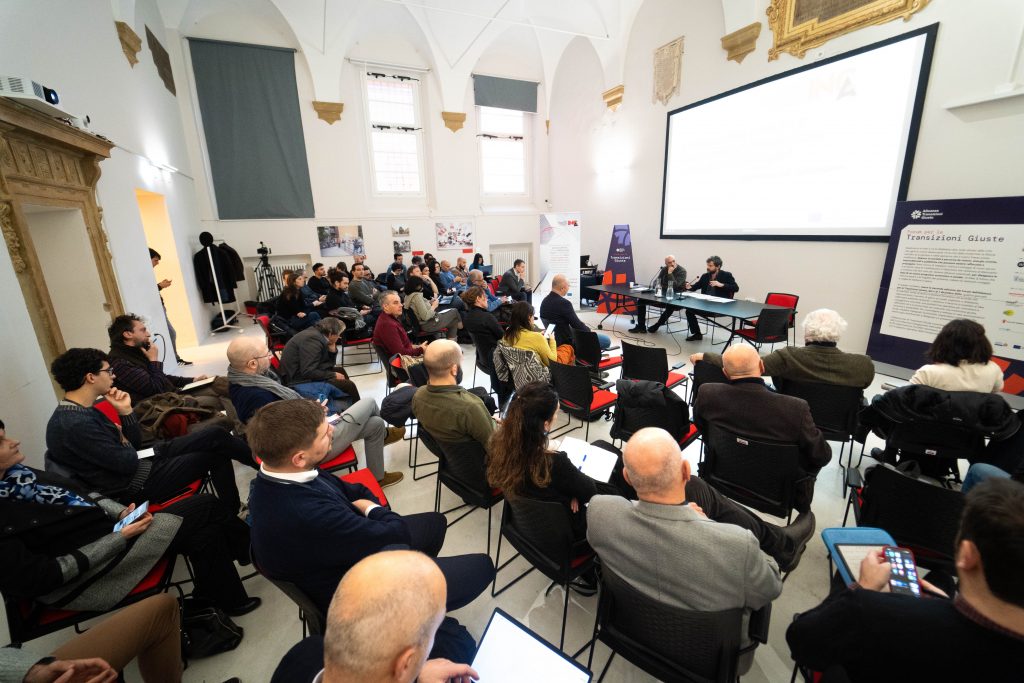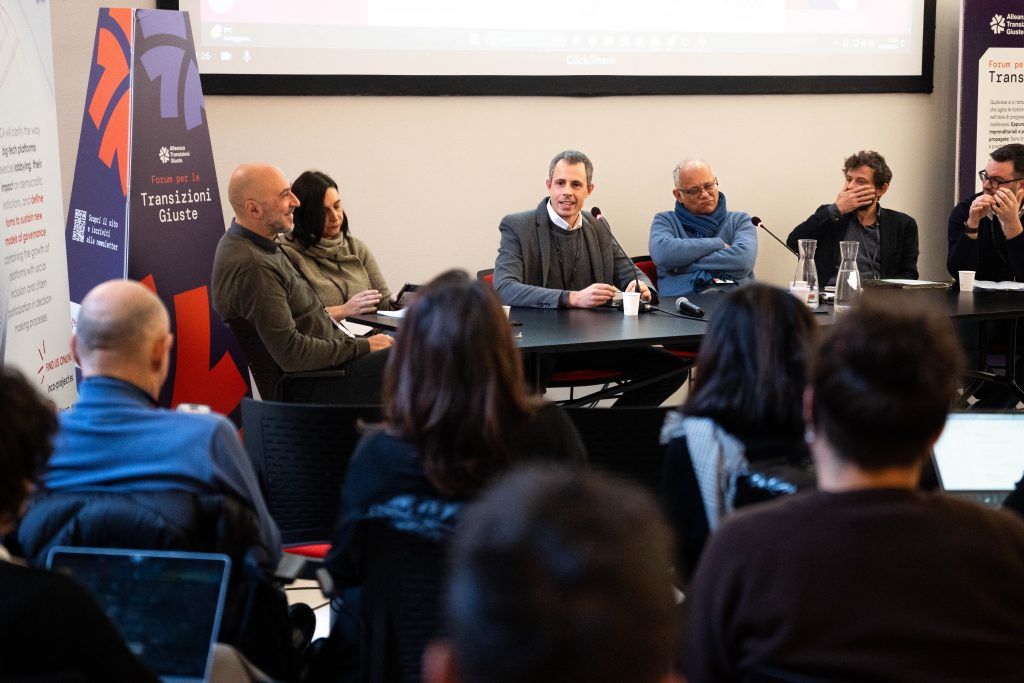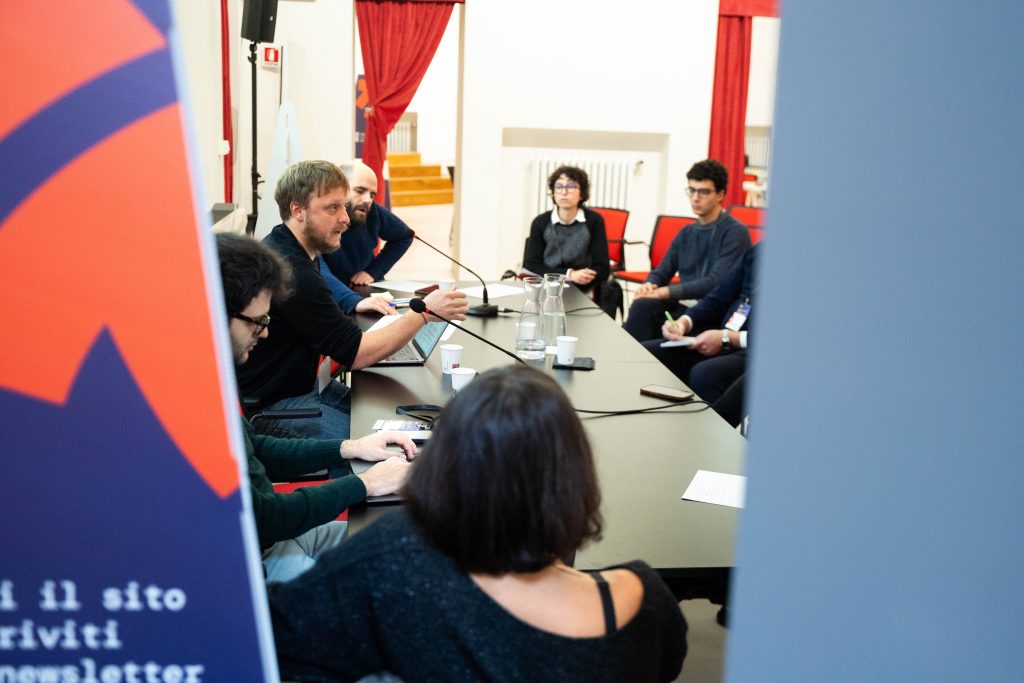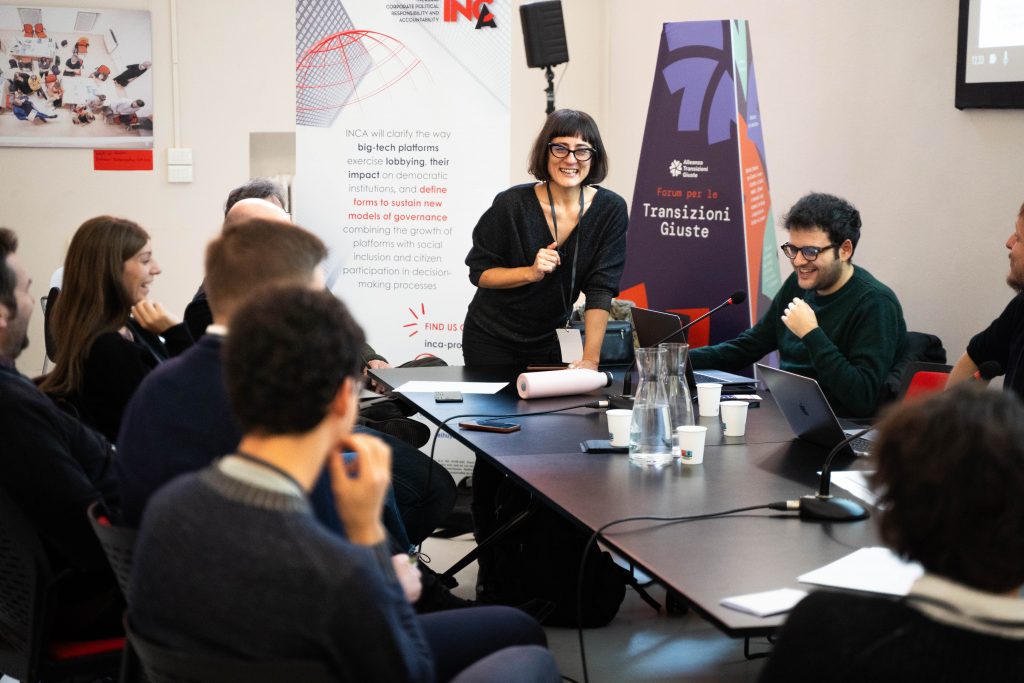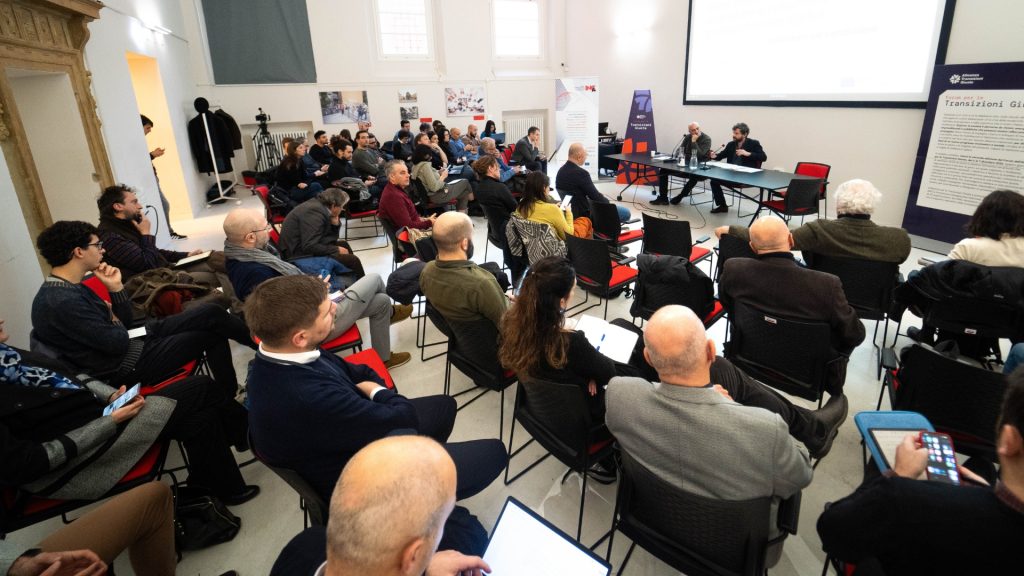
Bologna Open Innovation Lab on alternative urban delivery schemes launched
On December 5th 2024, the Bologna Open Innovation Lab (OIL) was launched within the Just Transition 2nd Forum in the dedicated event “INCA Workshop. How to support policies and alliances for an alternative to large digital platforms” with more than 50 participants that actively followed the entire event and workshop tables. This moment represented a core part of the INCA community engagement process, and the initial step for the setting up of the three collaborative laboratories in three European cities (Bologna, Barcelona and Bucharest).
The event consisted of an opening seminar on the social and environmental impact of large digital platforms such as GAFAM (Google, Amazon, Facebook, Apple, Microsoft) and the presentation of potential alternatives regarding platform workers’ health and safety conditions. The plenary involved several Italian academic and expert personalities, namely Massimo Bugani (Councilor of the Municipality of Bologna), Edoardo Mollona (INCA project coordinator-University of Bologna), Sandro Mezzadra (University of Bologna), Cosmano Lombardo (We Make Future), Valentina Bazzarin (Think Tank Period) and Stefano Kenji Iannillo (SOMA – Solidarietà e Mutualismo Avellino) and Fondazione IU moderated it.
The plenary session was followed by three participative working groups, set to showcase three guidelines for policymakers and institutions to limit the ubiquitous role of large digital platforms in our societies, specifically focusing on e-commerce and delivery platforms.
The three working panels discussed the following topics:
- Safeguarding and empowerment of platform workers, with the intervention of Gianluca De Angelis (IRES Emilia Romagna);
- Data governance, with the intervention of Mattia Frapporti (University of Bologna);
- Local and metropolitan logistics, with the intervention of Andrea Bardi (Fondazione ITL).
The working group on “Local and metropolitan logistics” gathered important insights from relevant stakeholders for Bologna OIL, which will work on the urban delivery ecosystem and will discuss potential alternative schemes to Amazon. This working table focused on improving the management of mobility, logistics, and delivery flows for both public and private players. It also aimed to facilitate forms of distribution and sales of local products, thus promoting circular economy practices. Various suggestions emerged from the discussion, highlighting the need for infrastructure to support sustainable mobility (such as bike lanes and signage) and the concrete development and adoption of Sustainable Urban Logistics Plans.
The Open Innovation Labs participatory processes will now start in the three pilot cities, and they will end in September 2025 with the production of the Good Practices and Policies Guidelines and the establishment of the Ethic Platform Advisory Group (EPAG).
